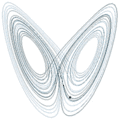Template:Selected anniversaries/August 17: Difference between revisions
From Gnomon Chronicles
No edit summary |
No edit summary |
||
| Line 65: | Line 65: | ||
||2005 – John N. Bahcall, American astrophysicist and academic (b. 1934) - best known for his contributions to the solar neutrino problem, the development of the Hubble Space Telescope and for his leadership and development of the Institute for Advanced Study in Princeton. | ||2005 – John N. Bahcall, American astrophysicist and academic (b. 1934) - best known for his contributions to the solar neutrino problem, the development of the Hubble Space Telescope and for his leadership and development of the Institute for Advanced Study in Princeton. | ||
||Andrew Mattei Gleason (d. 2008) was an American mathematician who as a young World War II naval officer broke German and Japanese military codes, then over the succeeding sixty years made fundamental contributions to widely varied areas of mathematics, including the solution of Hilbert's fifth problem, and was a leader in reform and innovation in mathematics teaching at all levels. Pic. | |||
||Katharine Blodgett Gebbie (d. August 17, 2016) was an American astrophysicist and civil servant. | ||Katharine Blodgett Gebbie (d. August 17, 2016) was an American astrophysicist and civil servant. | ||
Revision as of 08:07, 28 March 2018
1807: Robert Fulton's North River Steamboat leaves New York City for Albany, New York, on the Hudson River, inaugurating the first commercial steamboat service in the world.
1904: Physicist, chemist, and crime-fighter Marie Curie condemns Extract of Radium as "a terrible hazard to health and sanity."
1929: Captain and pilot Francis Gary Powers born.
1930: Film director and arms dealer Egon Rhodomunde begins shooting his film Spy Pilot.
1970: Soviet spacecraft Venera 7 launched from Earth. It will become the first successful soft landing on another planet (Venus).
1996: Lorenz system develops self-awareness, spontaneous seeks out and fights crimes against mathematical constants.






